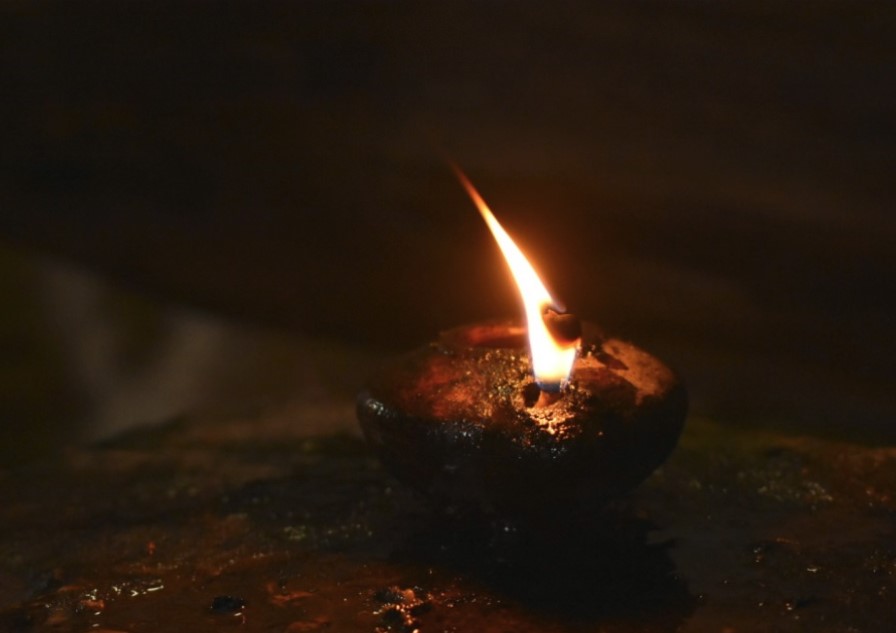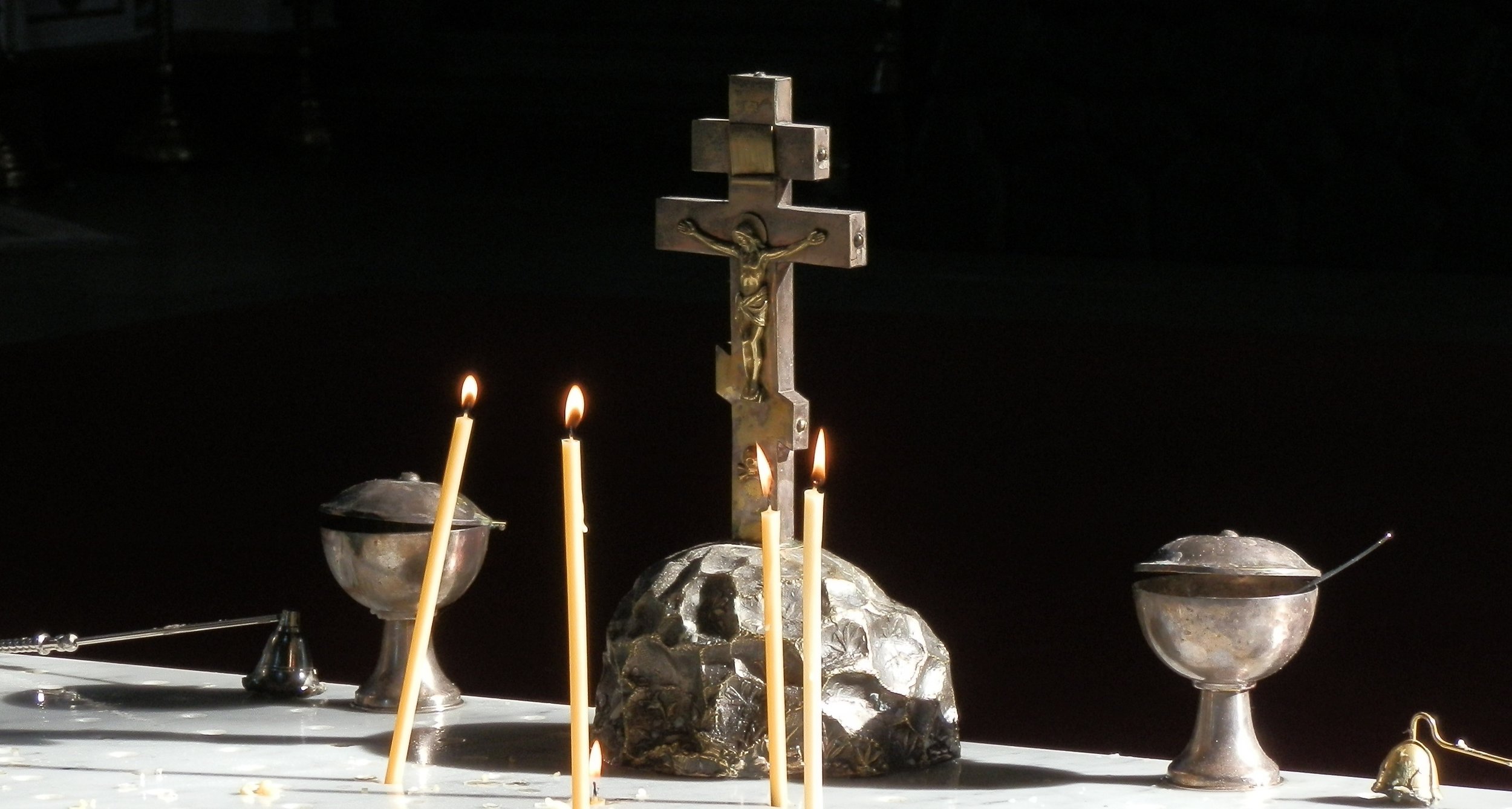God’s Goodness
A Study Guide
The Copley Library reading room.
God’s goodness and love need to be disentangled from human evil, because God did not cause it, and is trying to heal us by drawing us to Jesus. This page will step you through how to understand God’s goodness and love, and perceive God in Scripture and your life. Please don’t hesitate to contact us with questions.
101: God and Human Suffering
101 Lesson
Is There Meaning in Suffering? A Comparison of Karmic, Christian, and Atheist Views
A short comparison of how suffering is interpreted in the Karmic view (caused by individual, redemption by individual), Christian view (caused by humanity, divine-human partnership in redemption), and Atheist view (caused by nature, redemption is questionable).
Where is God in Pain, Especially Mine?
Text and slides of message about God being not behind your pain, with you in your pain, and ahead of your pain pulling you through it. Jesus is central to the experience of pain because he is the one who fully transformed pain so he could bless others in resurrection life, as opposed to passing on the pain to others, since “hurt people hurt people.”
101: Confirm What You Learned
Yolanda Smith, The Musical Theology of Spirituals. Christianity Today, 1999. This article is a short introduction to the African American songs called Spirituals, simple songs crafted by enslaved people while they suffered under brutal slave masters, drawn from biblical language and often set to West African melodies. This musical tradition is helpful to consider when disentangling God from being the cause of human evil and suffering.
Robert Saler and Alexander Lingas, with Shawn Wallace, Turbo Qualls, and Katherine Weston, Let My Prayer Arise! Music in the Experience of African American Orthodox Christians. Luminous, May 21, 2021. This audio recording is a rich conversation about racial history, culture, music, and spirituality.
101: Put It Into Practice
Whose Justice? (undergraduate version) or Whose Justice? (law school version)
Check out the slides of this evangelistic conversation starter. Consider showing both Christians and non-Christians the questions it brings up, and discussing your responses to them. Here are instructions on how to talk about the questions it raises, especially with non-Christians.
101: For More Inspiration
Text and slides of a message about the role Christian faith played in history, bringing about hospitals, abolition of slavery, education, science and technology, beauty and the arts.
201: Restorative Justice in Criminal Justice Reform
201 Lesson
For a church called Reality San Francisco (Apple Podcasts, May 9, 2016). This is a 68 minute presentation, starting with the four principles of justice (0:00 - 34:30), then moving on to applying restorative justice to the current issues of systemic racism in the U.S. criminal justice system and mass incarceration of non-violent drug offenders (34:30 - 1:09:00). See the slides.
Restorative vs. Retributive Justice and the Implications for Public Life
An article published by the Journal of Urban Ministry, June 2020. A 10 - 15 minute read. Explores real-life examples and the philosophy of restorative justice in the criminal justice sphere. Connects to theology. “Perhaps as we “decolonize” our theology today, we might constructively restore major pieces of Christian thought, practice, and life. It would be fitting, as we restore the things we have lost as part of our Christian inheritance, if we rediscovered God’s restorative justice as well.”
201: Confirm What You Learned
God’s Justice: Restorative, Not Retributive
The following video is a 40 minute presentation with 20 minutes of Q&A following. Mako Nagasawa spoke at Gordon-Conwell Theological Seminary in March 2022, explaining various activities of God in Scripture as His restorative justice: 1) "An Eye for an Eye" as Restorative Justice; 2) God's Treatment of Israel as Restorative Justice; 3) God's Presence in Israel as Restorative; and 4) God's Atonement in Christ as Restorative. These slides accompany the presentation. This video follows a chapel service which was not recorded, which was on the four principles of justice. See also a 60 minute English and Spanish translation of the most important parts of this content (Zoom video recording).
201: Put It Into Practice
Whose Justice? (undergraduate version) or Whose Justice? (law school version)
Check out the slides of this evangelistic conversation starter. Consider showing both Christians and non-Christians the questions it brings up, and discussing your responses to them. Here are instructions on how to talk about the questions it raises, especially with non-Christians.
201: For More Inspiration
The Anastasis Center blog post, Apr 28, 2016, on the Fall and the exile from the Garden. Neuroscientists currently observe that “karmic justice” or meritocratic-retributive justice is the default setting of the most primitive part of our brain. But restorative justice broadly works, even though it requires us to have empathy for even offenders and hope for personal repentance and change. Not only does this become a pastoral challenge, it is an argument against penal substitutionary atonement: It confirms that the fall produced an antipathy towards our fellow human beings that results in people making meritocratic-retributive justice the highest form of justice, even though restorative justice produces better results.
301: Wealth, Power, and Restorative Justice
301 Lesson
Politics, the Church, and Jesus’ Restorative Justice
Slides of a presentation given to the 2022 Reconstruction class. The introduction features John Winthrop vs. Roger Williams to highlight the debate over freedom of religious Conscience vs. Christendom. The presentation highlights Christian accomplishments in health and hospitals, education and schools, land ownership and economic justice, and criminal justice reform.
Slides to a presentation on how early Christian leaders read Genesis 1 as God providing land and wealth for all, but how Protestant heretic John Locke - the father of classical liberalism and “meritocracy” - argued that more “productive” people could take land from less “productive” people. The majority of white American evangelicals follow John Locke’s heretical views about wealth.
301: Confirm What You Learned
Michael Sandel, Why We Shouldn’t Trust Markets With Our Civic Life. TED Talk, Oct 7, 2013.
Watch this 14 minute video that argues key aspects of civic life should be democratically governed and not up for sale: “In the past three decades, says Michael Sandel, the US has drifted from a market economy to a market society; it's fair to say that an American's experience of shared civic life depends on how much money they have. Three key examples: access to education, access to justice, political influence. In a talk and audience discussion, Sandel asks us to think honestly on this question: In our current democracy, is too much for sale?”
301: Put It Into Practice
Whose Justice? (undergraduate version) or Whose Justice? (law school version)
Check out the slides of this evangelistic conversation starter. Consider showing both Christians and non-Christians the questions it brings up, and discussing your responses to them. Here are instructions on how to talk about the questions it raises, especially with non-Christians.
301: For More Inspiration
Human Dignity: Does Every Individual Matter?
An essay; 30 minute read. Science, philosophy, existentialism, other religions, and double-predestination-based theologies mean that some human beings do not matter. Only a fully Trinitarian theology with a medical substitutionary atonement can provide an adequate foundation.
Sources of Christian Restorative Justice:
Interested in learning more? Explore Christian restorative justice in Scripture and the original understanding of the church, in regards to Christian political action. Check out books, web articles, etc. from representatives of the three broad Christian traditions.
Christian Restorative Justice Critique of the U.S., by Political Ideology
Check out various areas of law and policy, such as banking, bioethics, economics, education, health and environment, and many more. We connect applications of Christian restorative justice to those areas, offering critiques of both the Left and Right as those terms are used in the U.S.










